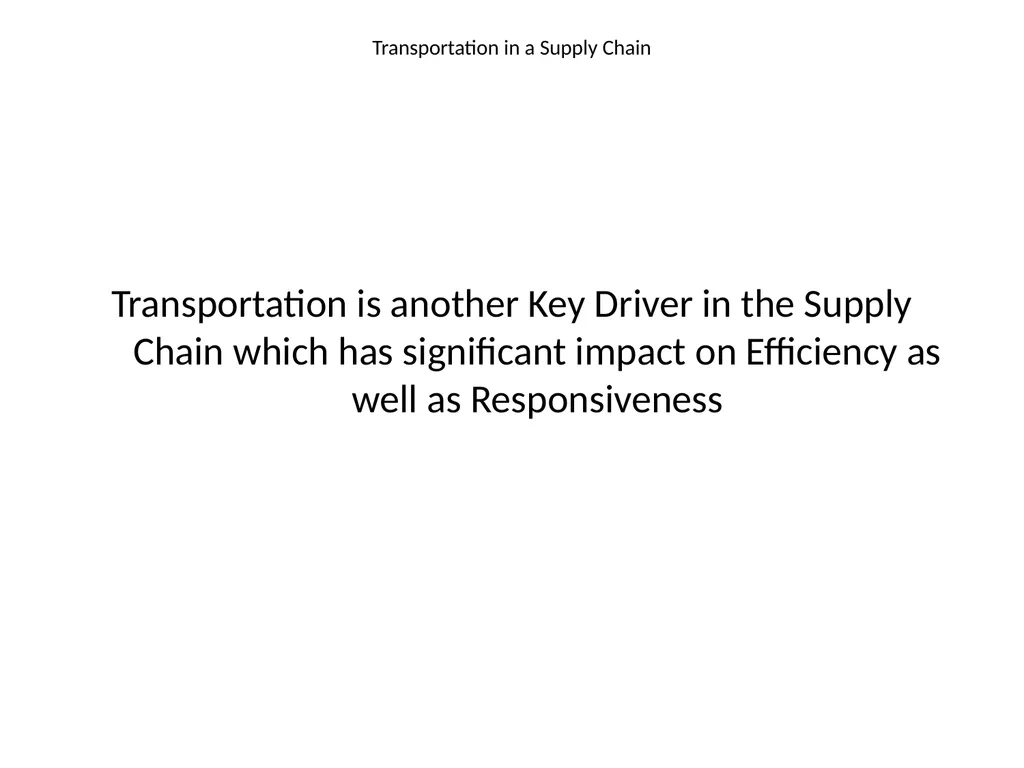
Author : briana-ranney | Published Date : 2025-05-24
Description: Transportation in a Supply Chain Transportation is another Key Driver in the Supply Chain which has significant impact on Efficiency as well as Responsiveness The Role of Transportation in a Supply Chain Movement of product from oneDownload Presentation The PPT/PDF document "" is the property of its rightful owner. Permission is granted to download and print the materials on this website for personal, non-commercial use only, and to display it on your personal computer provided you do not modify the materials and that you retain all copyright notices contained in the materials. By downloading content from our website, you accept the terms of this agreement.
Here is the link to download the presentation.
"Transportation in a Supply Chain Transportation is"The content belongs to its owner. You may download and print it for personal use, without modification, and keep all copyright notices. By downloading, you agree to these terms.













